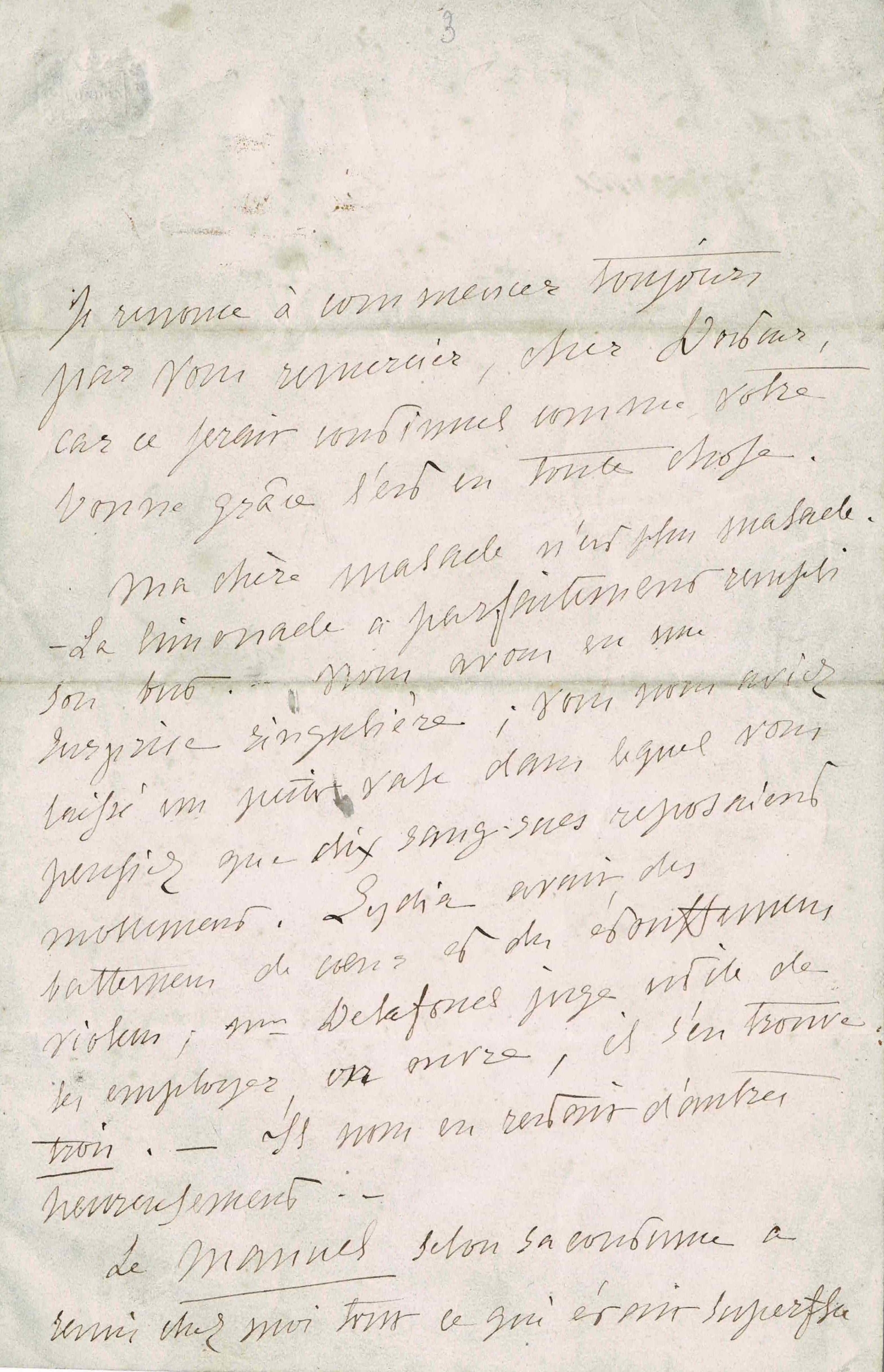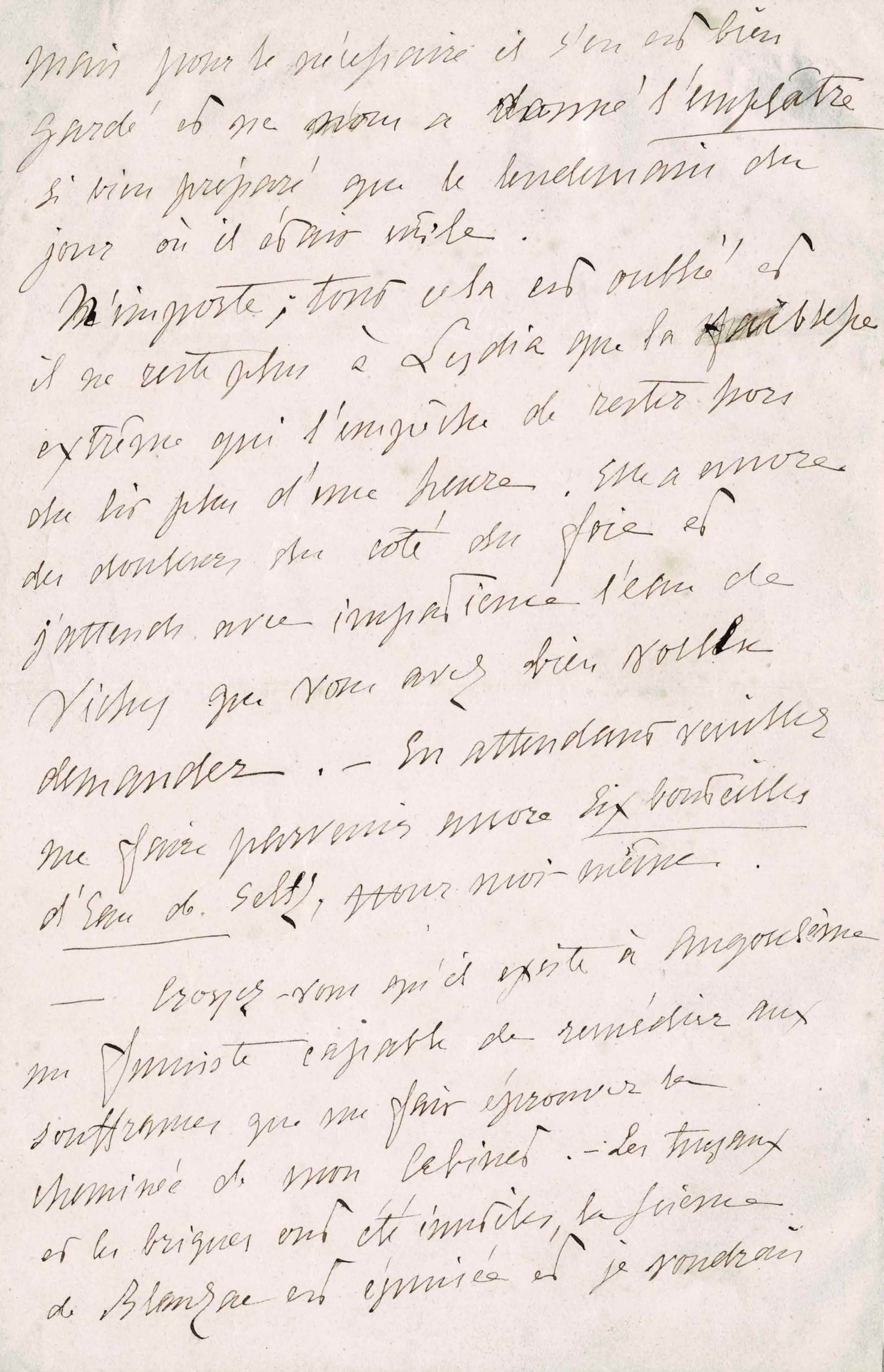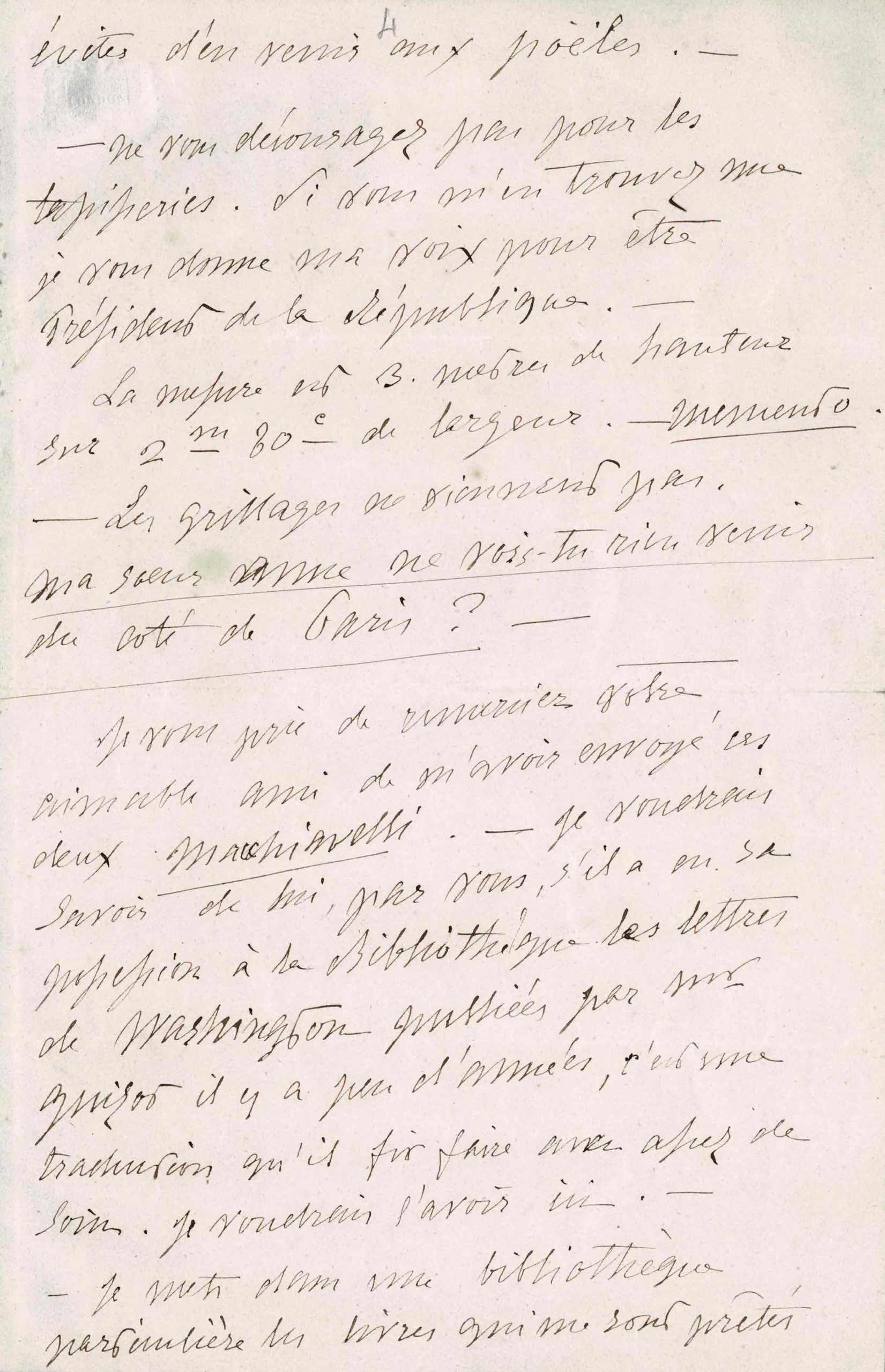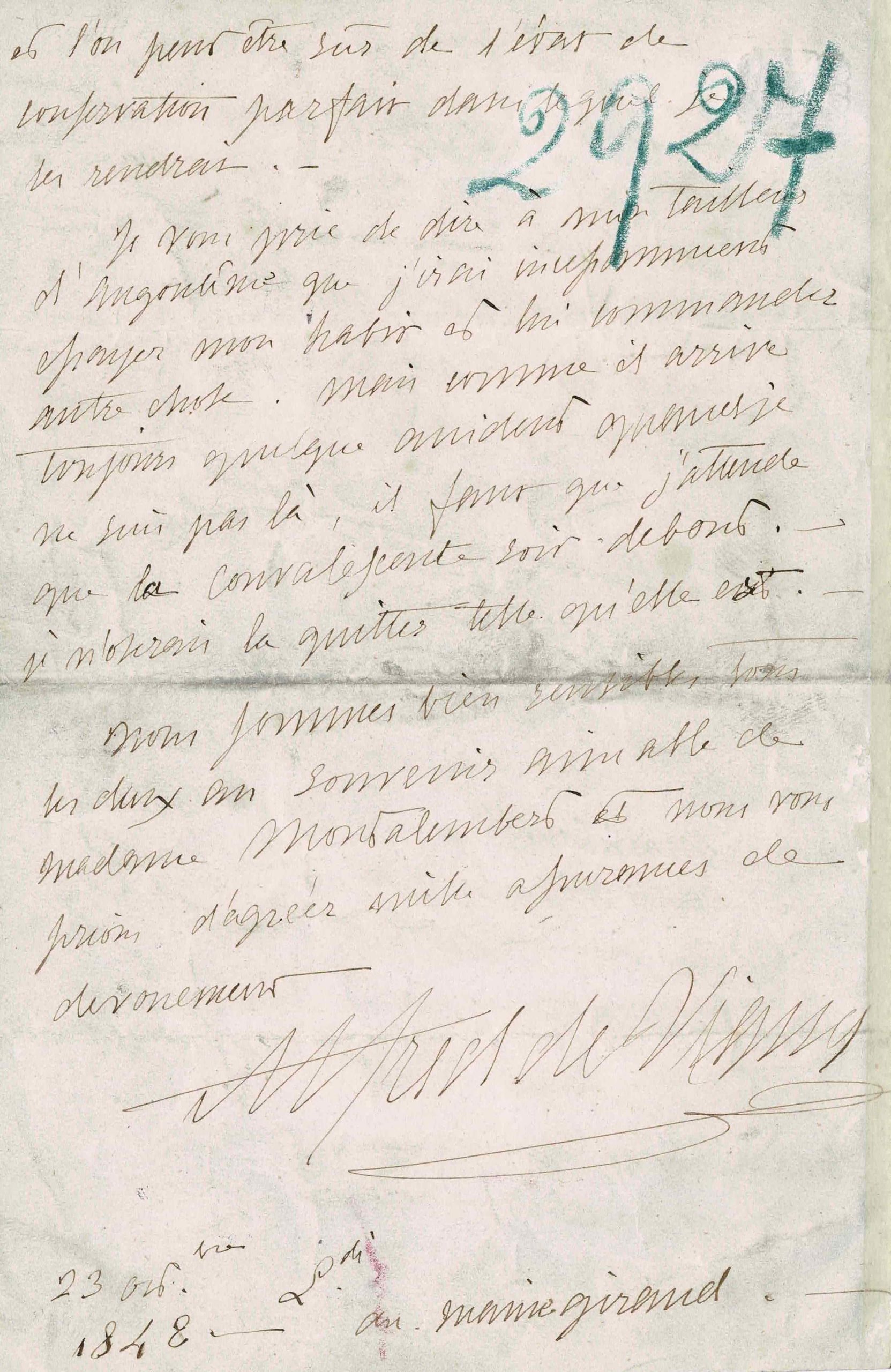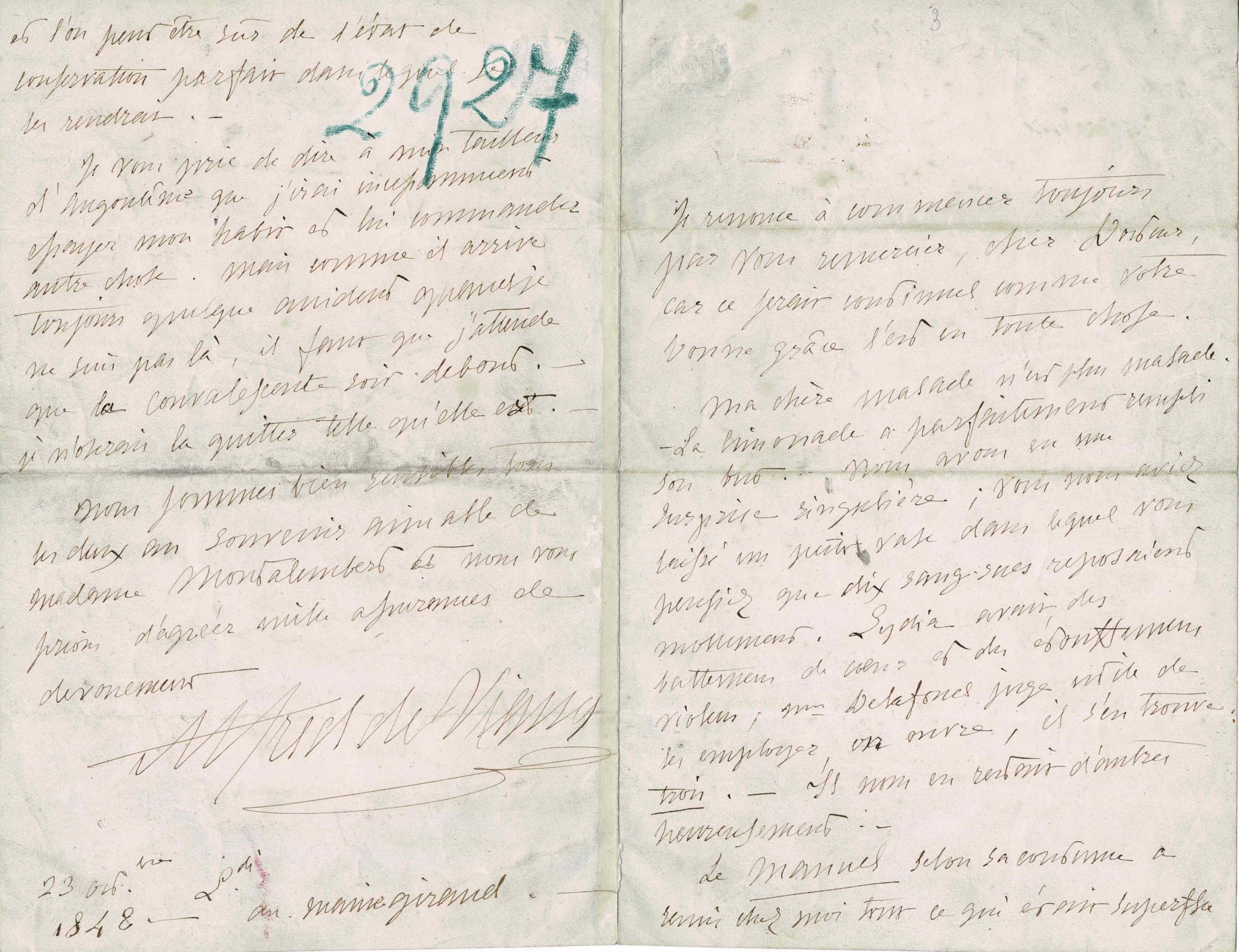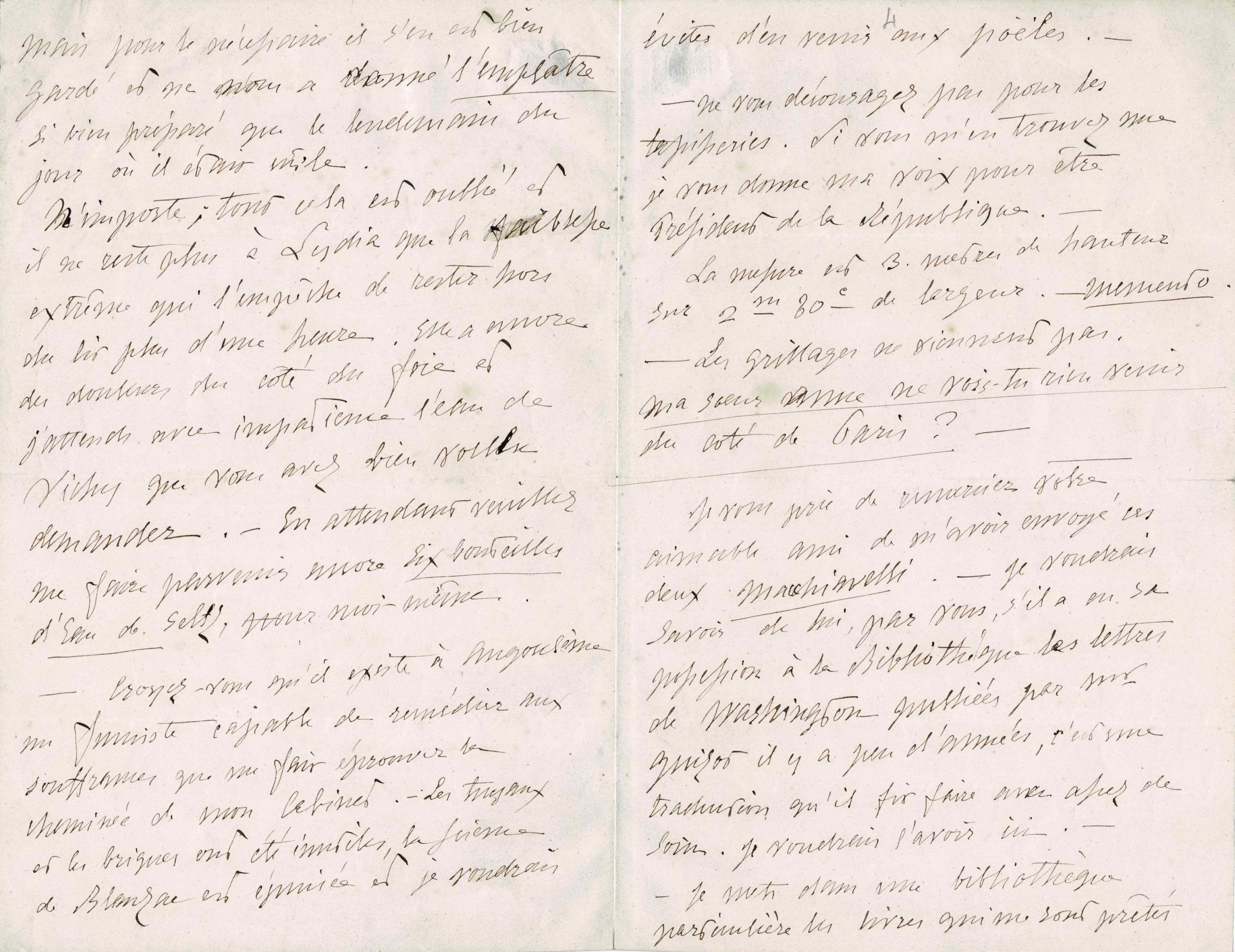Categories Autographs - Arts & Letters , New releases , VIGNY Alfred de
Alfred de VIGNY - Signed autograph letter.
Autograph letter signed to his friend Doctor Montalembert.
Four pages in-8°. Typographer's inscription on the 4th leaf .
[Maine-Giraud] October 23, 1848.
850€

